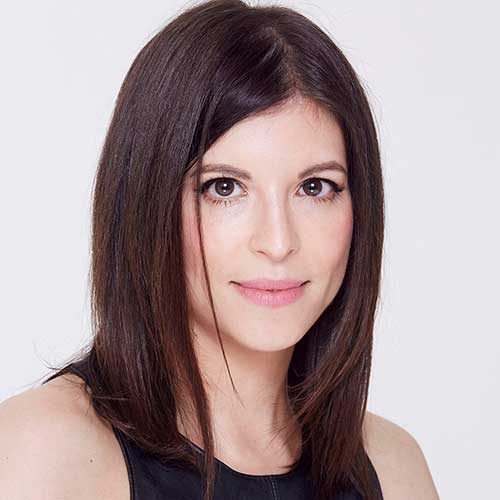Many of us have been spending this month thinking about our goals for the year ahead. The best way to reach any well-being goal is by starting with behaviour and environment changes that are realistic and sustainable. One change to our environment that can be especially beneficial is decluttering the space around us, which can help us free up mental space and move forward with our goals with a clear mind.
We asked our Thrive community to share with us the small ways they declutter the space around them and how it helps to reduce stress. Which of these ideas will you try?
Start by setting an intention
“There is an old spiritual teaching that says, ‘You cannot bring in the new unless you have space for it’. I am a big proponent of clearing space to make way for new possibilities. I set an intention at the start of each quarter of the year to declutter both my home and my office. I sort through what I no longer need or want and donate to charity or give away. I find this decluttering and clearing ritual not only makes for a more organised and spacious home and office, but also a more spacious mind.”
—Candice Tomlinson, coach and hypnotherapist, Sydney, Australia
Give every item a home
“One way to minimise clutter is to have systems in place that give everything a home. I like to invest my time organising in one go. I give everything in my cupboards, desk and countertop a proper place to be that’s easy for everyone to stick to. With easy systems to follow, we avoid clutter collecting in the first place. When our spaces are systemised, it takes no time at all to put things back where they belong. It’s worth the initial investment of time. Spend an afternoon, turn on the music and have fun organising your spaces!”
—Emily Madill, author and certified professional coach, Nanaimo, B.C., Canada
Try the “10-step 10-second rule”
“I use the 10-step 10-second rule, where you take the extra 10 steps and 10 seconds to put something away. It keeps things from piling up that will end up taking hours to declutter. With weak spots such as a junk drawer or messy purse or desk, I completely empty the space or the purse and only put back what I need. Doing this every few days makes it easier and faster. I also only buy what I love and not what I merely like. It increases a sense of satisfaction and self-worth and helps you not buy things because they are on sale.”
—Mary, licensed mental health counsellor and author, Florida, USA
Pick a weekly donation day
“I declutter every Saturday. When we have an item that we haven’t used in a year or more, we donate it to places such as the Salvation Army. Being able to declutter helps me declutter my mind as well because the room has a better aura and my mental health becomes better in the process.”
—Sheena Yap Chan, keynote speaker, Toronto, Ontario, Canada
Do an end-of-day computer sweep
“I find it so much easier to take five minutes at the end of my workday to close out my tabs, write down what didn’t get done and needs to be added to tomorrow’s list, flag any emails I still need to address, and walk away. Then once a week, I gather any notes I’ve jotted down in my notebook and make sure they either get filed correctly or tossed in the trash. Keeping my workspace neat is very important to me and allows me to work with a clearer mind.”
—Laurie Jonas, blogger and author, Red Wing, Minnesota, USA
Clear off your desk when you sign off
“I have no problem decluttering my house, but up until recently I had no routine for my home-office decluttering. Up until 2020, I had a corporate career and I would work from multiple offices. After two years since working virtually, I decided it is time for a clean desk policy. For now, that means closing all applications, archiving every month, and leaving the desk empty every evening. The physical environment matters, so I remodelled my home office by bringing in more light, white panels and plants. Now, in this office I do feel like a proper CEO.”
—Steliana van de Rijt-Economu, executive leadership coach, the Woodlands, Texas, USA
Do a nightly clean-up with your partner
“Our environment has such an impact on our well-being. With a toddler in our household and being two busy parents, my husband and I put our daughter to bed each night and then do a quick clean-up of our space, putting toys away, cleaning the kitchen, organising our office and even our email inboxes before bed. We prep the coffee so it’s ready to go in the morning when we first wake up. This only takes about 15-30 minutes total. We are always able to go to sleep with a clean house and a clear mind ready to start the next day. It is such a simple fix to take the time to clear space so that I can love and appreciate my home, my workspace, and the gift of life I get to live daily.”
—Angela Reiner, positive psychology coach and consultant, Half Moon Bay, California, USA
Use aromatherapy in the kitchen
“I am always so tempted to leave dirty dishes in the sink at night, but since I often work at my kitchen table, I want the space to feel open and clean each day. So I bought a sage smudge stick and now I use it as an incentive to tidy up after every meal. After the dishes are done and the table set up nicely, I burn the sage and clear the air, ready for the next day.”
—Henna Garrison, mindset coach, Sicily, Italy
Clear out your inbox
“I began this year by saying, ‘You can only wear one piece at a time. You can only use those papers one more time’. But Google reminding me I’m at 95% capacity with my email spoke loudly to me. I’ve been purging my emails, pictures, and more. This has helped clear my mental space and physical spaces so much. It’s helped me remember where I’ve been and where I’m going. It has jumpstarted other areas of purging and decluttering as well. Different things inspire different people! My email is my business, social, and community life. If it was cluttered, how much more the other places!”
—Tharesa Chadwick Lee, MA licensed consultant, USA
Try out the “six-month rule”
“Oprah Winfrey once said, ‘If you don’t use it in a year, get rid of it’. For me, because of COVID and being at home a lot of the time, I’ve created a rule where if I don’t use it in six months, I get rid of it. And the best way for me to get rid of things at home is by bringing in my wife. I ask her to go through my office and see anything that she deems as clutter. Bringing someone from the outside and letting them organise your workspace can be helpful. It can help illuminate clutter that you can’t see in front of your own nose.”
—Rudy Chavarria Jr. founder, college web mentor, Walnut, California, USA
Close your open tabs
“For me, part of decluttering is just getting ‘to do’ items out of the way. First, I clear out unused tabs as I’m on my computer most of the time. It’s like having a separate clean desk for each project! I also use a bullet journal to track lots of to-do items so there are no sticky notes or scraps of paper around. I don’t have to try and remember things, which helps me focus. I also listen to focus music to ‘clear’ my headspace! Desk, computer, brain — declutter all of them.”
—Dave Galloway, principal strategist, North Vancouver, B.C., Canada






